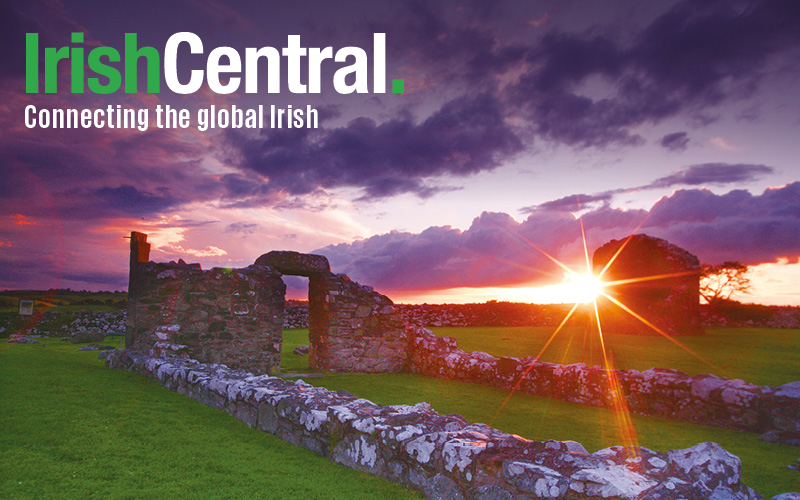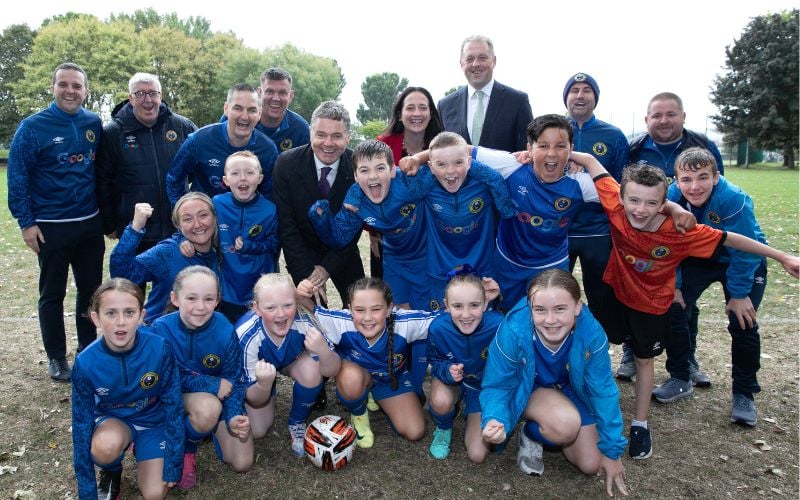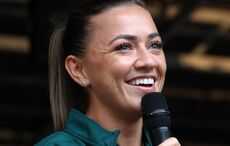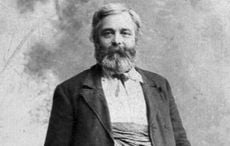The request and the urgency of it must have seemed very strange to the night porter at the Bristol Airport hotel as two Irishmen begged for a key to a room and an Internet access code.
It was late on Saturday night, almost Sunday morning, and the bar in the lobby was already jammed with their countrymen in celebratory mood.
The two Irish men, one middle aged and the other in his early 30s which probably borders on middle age, were like a honeymoon couple in their need for a room key.
“We’ll be back down as soon as they’re out of the ring,” I muttered as the bemused English gentleman allowed a wry smile to cross his face.
Okay, so you’ve probably guessed what I’m rambling on about at this stage. Bi-location is a myth. On Saturday even I couldn’t be in two places at the same time.
The lure of Cardiff and Grand Slam glory ultimately won out over the prospect, a slim on beforehand it has to be said, of Bernard Dunne winning a world title on home soil.
The tug of war had been pulling at me for some weeks now.
A month or so ago I spent a day in Belfast with Bernard Dunne, behind the scenes at the training camp that has been his home on and off ever since he returned from Los Angeles four years ago.
Dunne was in the shape of his life that week, physically and mentally. Thanks to the lessons learned in his shock defeat to Spain’s knock-out merchant Kiko Martinez some 18 months earlier, he had changed his ways.
Instead of relying on boxing expert Harry Hawkins to do everything, Dunne had sought help in every area of his preparation ahead of his world title clash with Ricardo Cordoba of Panama.
Mike McGurn, one time consultant to the Irish rugby team, was brought in on the fitness side. Two core strength specialists were added to the team in the gym. Two nutritionists controlled everything that passed his lips for the three months before the fight.
Listening to Bernard Dunne that day and observing his karma, if you like, at close quarters, I knew he had a great chance to win on Saturday night. That’s why I told anyone prepared to listen to put money on him.
Few did, which explains why he was still 5-2 to win the fight on Saturday morning, and why he was 100-1 to stop it in the 11th round on Saturday night.
It also explains why I desperately wanted to be ringside to see an Irishman win a world title in his home city of Dublin, the first time that has ever been achieved.
Others have defended their titles on Irish soil, no one has ever won it in Dublin before.
Of course in these recessionary times, needs must and the needs of the Sunday Star newspaper I work for count for everything in the Dervan household.
My loyalty to the Star is absolute. When they said they wanted me in Cardiff on Saturday afternoon for a game that kicked-off at 5:30 local time, two hours before our print time, I knew and understood where they were coming from.
None of us can afford to question our employer’s sanity in this day and age, not even if it means missing out on Bernard Dunne’s greatest moment.
So Saturday morning was spent on an Aer Lingus plane surrounded by rugby fans, more Irish Times than Daily Star readers if truth be told, but some of them even seemed like decent human beings! That’s a joke by the way in case the broadsheets are touchy about their possession of the rugby audience.
By three o’clock I was already in the Millennium Stadium, by seven o’clock I was sitting on the edge of my seat as the most important game for Irish rugby in 61 years ebbed and flowed like the Liffey itself.
Wales were ahead by two scores at halftime. We came out firing with two great tries inside a minute at the start of the second-half. We conceded two stupid penalties and Stephen Jones punished us.
Then he added insult to injury with the drop goal that put Wales a point ahead with just five minutes left on the match clock.
Suddenly a seat back in the O2 Arena in Dublin away from this potential heartache seemed like a good idea. Then Peter Stringer and Ronan O’Gara pulled the rabbit from the hat one last time, and the drop goal to end all drop goals was sailing through the Welsh posts and right through their hearts.
There were still two minutes on that electronic clock. There was still hope for Wales, hope they magnified when late Irish substitute Wallace conceded another needless penalty.
O’Gara said afterwards that he wanted to kill Paddy Wallace there and then. Wallace said he’d have done it himself if the aforementioned Jones hadn’t left the kick from the halfway line short of the posts.
As the final whistle sounded and the Grand Slam was secure the man next to me, a man from the Irish Examiner called Charlie Mulqueen, who has covered more Irish rugby matches than I’ve had hot dinners, hugged me. I hugged him back.
What followed is a bit of a blur. We worked inside the bowels of the great stadium as the Irish fans painted the Welsh town red, appropriately enough I suppose.
Then my colleague Garry Doyle and myself grabbed a lift to Bristol city center, got a taxi out to our airport hotel and pleaded with the bemused night porter for a key to a room, any room, and access to the Internet and the RTE website.
Our man on the desk duly obliged after some gentle persuasion and we were up the stairs like Usain Bolt.
I looked after the laptop and the live stream from Dublin and Garry made the tea — he had to with a name like Doyle.
We logged on to the RTE website and accessed the live feed just as Bernard Dunne was making his spectacular entrance into the ring for the biggest fight of his life.
Even over 100 miles away and on the smallest viewing area possible on my Dell laptop, the atmosphere was electric.
The sandwiches and the beers had arrived by the time Bernard went down twice in the fifth round. Their arrival picked us up and Dunne’s spirit picked him up, how I still don’t know, back in Dublin.
Not even the miniscule size of the screen could deflate our enthusiasm for what must have been the greatest fight ever staged on Irish soil.
When finally Dunne decked Cordoba in the 11th round my screams could have been heard back in Cardiff.
I was still laughing when we made our way back to reception as Garry looked to check in. We both had a smile on our face, just to add intrigue for the benefit of the late night manager on duty.
A great day had become a great night for Irish sport. Like the golden generation of Irish rugby stars, Bernard Dunne had his detractors before Saturday.
Like Dricco, Rog and Stringer before him, he was able to pick himself up for one last shot at the big time.
The rugby team will always have Cardiff. Bernard Dunne will always have the 02 Arena. Garry Doyle and I will always have Bristol.
It was some day, some night, some kind of wonderful for Irish sport.
Can it get better? Yes – if Giovanni Trapattoni can conspire his way to wins over Bulgaria, and Italy in the next 10 days and launch us all into another rendition of elation once again.
Now that really would put the icing on the cake!




Comments